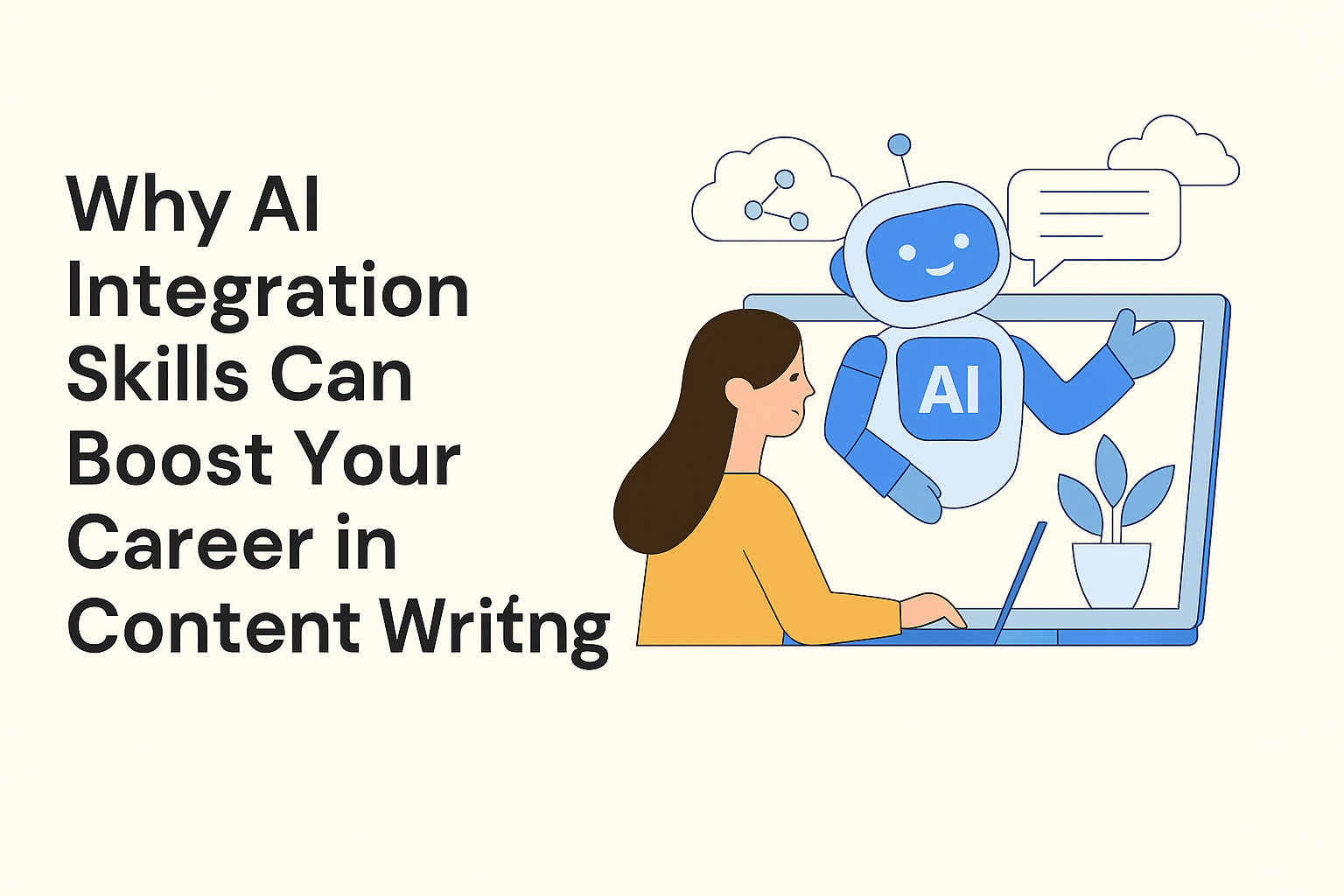
AI tools like ChatGPT and Jasper are no longer futuristic toys. They are a part of the daily grind for content creators. They handle first drafts, run SEO checks, and even suggest ways to improve readability, giving writers room to focus on strategy and connecting with their audience.
Using AI can speed workflows and elevate content quality, as it can analyze trends and patterns at a scale humans can’t. Success comes from blending AI’s efficiency with a human touch, keeping writing authentic and relatable.
Career Growth with AI Skills
Writers who know their way around AI gain a clear edge. Managing bigger projects, tackling more clients, or moving into roles like content strategy or analytics becomes feasible. While some worry AI could replace jobs, many industry insiders see it as a collaborator that boosts creativity and opens doors to specialized opportunities. Writers proficient in AI can command higher rates and tackle complex campaigns that would overwhelm someone sticking to traditional methods.
Must-Have Skills
To stay competitive, content creators need to understand prompt engineering, basic data analysis, and AI ethics. Online platforms like Coursera and Skillshare offer targeted courses to get up to speed quickly. Writers who can combine these skills with solid storytelling can stay ahead in a field where AI adoption is accelerating fast. Knowing how to guide AI output, spot mistakes, and maintain voice is just as important as understanding keywords and formatting.
How AI Changes the Workflow
AI automates repetitive tasks, freeing writers to think strategically. Drafts appear in seconds, keyword placement is suggested automatically, and content can be customized based on audience behavior. This efficiency matters in fast-paced settings like marketing agencies, freelance projects, or social campaigns. Professionals report dramatic productivity gains once they integrate AI effectively.
Creativity Meets Technology
Even creativity benefits from AI. These tools can suggest ideas and generate angles and polish the tone for consistency across channels. But AI doesn’t fully grasp emotion, cultural nuance, or humor. Writers who combine AI efficiency with human insight produce content that stands out and connects with readers. Hyper-targeted content, guided by AI analysis, boosts engagement and builds brand loyalty without losing personality.
Expanding Career Opportunities
AI proficiency opens new doors. Roles like AI content strategist, prompt engineer, or data-savvy writer are in demand, and pay scales reflect specialized skills. Technical writing increasingly requires familiarity with AI tools for research, drafting, and optimization. While overreliance risks generic output, skillful use amplifies creativity, making writers more valuable than ever.
Conclusion
Mastering AI involves knowing the tools, understanding data, and keeping content human. Prompt engineering, ethical content creation, and analytics are crucial skills, paired with editing AI drafts for natural flow. Continuous learning keeps professionals ahead of changes, helping them avoid plagiarism pitfalls and maintain originality. Writers who strike the right balance will thrive in a rapidly shifting content ecosystem.
Must Read:
Go Back4 Myths About AI Content Writing which writers still believe